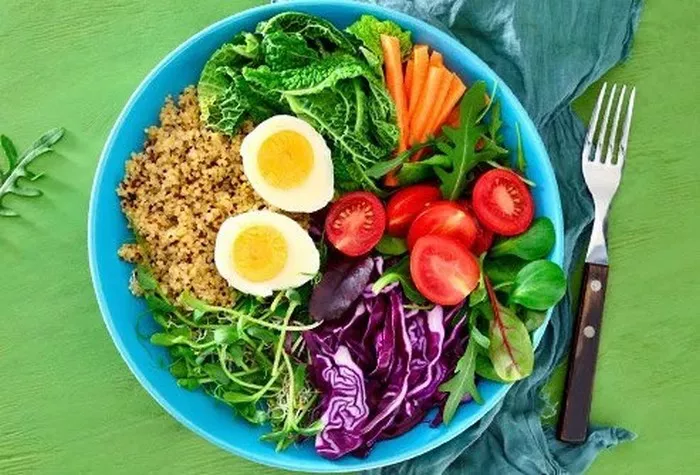Earlier, U.S. News & World Report released its list of the best diets for 2023. The list is a dietary reference for different groups of people after evaluating nearly 40 dietary patterns by experts in the fields of nutrition, dietary psychology, diabetes and heart disease.
The top 3 on the best diet list of 2023 are:
The Mediterranean diet is still at the top of the list, and the DASH diet and flexitarian diet are tied for second place.
The third best diet overall is still the brain-boosting diet.
1. Mediterranean Diet – Reduces Risk of Disease and Death
The Mediterranean diet is healthy because it emphasizes vegetables, fruits, legumes, nuts, whole grains, olive oil, and spices; eats fish and seafood at least 2 times a week; eats poultry, eggs in moderation , cheese and yogurt; stay away from red meat and sugar; if you have to drink, drink some red wine in moderation, of course it is best not to drink alcohol. At the same time, staying physically active and exercising more are also an integral part of the Mediterranean diet.
2. Deshu diet-for anti-hypertensive effect
The core of the Deshu diet is high calcium, high potassium, high magnesium, and high dietary fiber, limiting saturated fatty acids and ensuring rich unsaturated fatty acids.
Several studies have shown that following a Mediterranean diet may lead to many health benefits, including weight loss, improved heart, blood vessel and brain health, prevention of chronic diseases such as cancer and diabetes, and increased longevity.
3. Flexitarian diet – more balanced and healthy nutrition
Flexitarianism is different from pure vegetarianism. Flexitarianism focuses on the balanced nutrition in vegetarian recipes, so it is also healthier. It is especially suitable for people who love vegetarianism. It advocates a balanced intake of five types of food, including “new meat”, namely tofu, peas, Nuts, eggs; vegetables and fruits; whole grain staples; dairy products; sugars and spices.
4. Brain-boosting diet – improve memory and prevent dementia
The brain-boosting diet combines the DASH diet and the Mediterranean diet, encouraging eating more of 9 foods and limiting 6 foods. Specifically, the nine foods that are encouraged to eat more include: green leafy vegetables, other vegetables, berries, nuts, olive oil, whole grains, fish, beans, and poultry.
Limit 6 foods including: Alcohol, preferably no alcohol; Red meat, no more than 3 servings per week; Desserts, no more than 4 servings per week; Butter and margarine, no more than 1 tablespoon per day; Cheese, no more than Once a week; fried foods, preferably no more than once a week.
Although different dietary patterns give recommendations for foods that can and cannot be eaten, we still need to consider some factors when choosing a dietary pattern that suits us. The first thing to consider is, is the food in the recipe acceptable? Secondly, the diet plan should also be coordinated with daily exercise. Assess whether the calories burned through exercise and the calories consumed through diet are balanced. Generally speaking, consuming slightly less calories than you burn every day is ideal for weight loss.
The best diet is still the Mediterranean diet:
The Mediterranean diet topped the list of the best overall diets for the 6th year in a row, and also ranked in all 6 sub-items of the healthiest, heart-healthy, diabetes-friendly, easiest-to-follow, and plant-based diets First.
Key points of the Mediterranean diet:
In general, the Mediterranean diet has the following characteristics: high fiber, high calcium, antioxidants, low fat, and low calories.
1. Include fruits, vegetables, whole grains, olive oil, beans, nuts, and spices in every meal;
2. Eat fish and seafood at least twice a week;
3. You can eat a little poultry, eggs and dairy products every week as appropriate;
4. Red meat and sweets can only be eaten occasionally;
5. Basically don’t drink. If you want to drink, just choose wine. Women are limited to 1 drink per day and men are limited to 2 drinks per day.
























